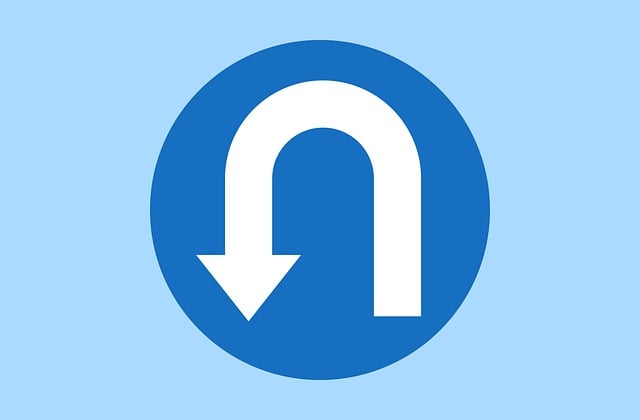Understanding the renewal process is vital for individuals considering or currently on semaglutide treatment for type 2 diabetes management. This involves collaboration between patients, healthcare providers, and insurance companies to ensure regular injections and uninterrupted access to this effective tool. The process includes periodic visits to assess medication suitability based on health conditions, side effects, and changes in overall health. Patients should gather comprehensive medical records, schedule consultations with healthcare providers, and maintain ongoing tracking of health markers for optimal results. Keeping detailed records facilitates personalized care adjustments and ensures successful semaglutide therapy continuation.
“Discover the essential steps for a successful renewal of your semaglutide treatment, a game-changer in diabetes management. This comprehensive guide delves into the process of renewing your prescription, offering insights for those new to semaglutide and highlighting why it’s crucial. Understanding its role in treating type 2 diabetes is the first step. Then, explore when renewals are necessary and who requires them. Learn about gathering medical records, consulting with healthcare providers, and what to expect during the renewal appointment. By mastering these processes, you’ll ensure a seamless journey towards improved health.”
Understanding Semaglutide and Its Role in Treatment

Semaglutide is a medication that has gained prominence in the medical community for its effective role in treating type 2 diabetes. It functions as a glucagon-like peptide-1 (GLP-1) receptor agonist, mimicking the effects of the natural hormone GLP-1. This mechanism enables semaglutide to stimulate insulin production and suppress glucagon secretion, leading to improved blood sugar control. As a result, it has become a popular choice for healthcare providers when prescribing medications for diabetes management.
For individuals considering getting prescribed semaglutide, understanding its renewal processes is essential. Since semaglutide is typically administered via injection, patients often require regular refills to maintain consistent treatment. The renewal process involves a collaboration between the patient, their healthcare provider, and potentially insurance companies. Ensuring timely renewals guarantees uninterrupted access to this effective diabetes management tool, contributing to better long-term health outcomes.
The Renewal Process: When and Why It's Necessary

When you’re on ongoing semaglutide treatment, regular renewal of your prescription is essential. This process involves revisiting your healthcare provider to ensure the medication remains suitable for your needs and health condition. Semaglutide prescriptions don’t last indefinitely, as they require periodic re-evaluation. Your doctor will assess factors like your response to the drug, potential side effects, and any changes in your overall health. If semaglutide is still recommended, they’ll renew your prescription, ensuring you continue to get the benefits of this innovative treatment.
Getting prescribed semaglutide for conditions like type 2 diabetes or weight management marks a significant step towards managing your health. However, it’s not a one-time event; renewal processes are in place to guarantee the long-term effectiveness and safety of your treatment. Staying engaged with your healthcare provider ensures any adjustments needed are made promptly, maintaining optimal outcomes from your semaglutide therapy.
Who Needs to Renew Their Semaglutide Prescription?

Anyone currently undergoing treatment with semaglutide should regularly renew their prescription to ensure a continuous and effective therapy. Semaglutide, a medication commonly used for type 2 diabetes management, requires renewal due to its specific prescribing nature. Unlike traditional oral medications, it’s administered via injection, making the renewal process slightly different. Patients often need to schedule regular appointments with their healthcare providers to assess the treatment’s progress and adjust the dosage if necessary.
Getting prescribed semaglutide is not a one-time event; it’s an ongoing commitment. Patients who have successfully stabilised their blood sugar levels with this medication but still require long-term management should actively participate in renewal processes. This ensures that their bodies remain responsive to the treatment, minimising potential side effects and maintaining overall health.
Gathering Medical Records and Documentation

When preparing for renewal processes of ongoing semaglutide treatment, gathering comprehensive medical records and documentation is a crucial first step. This includes all previous prescriptions, treatment plans, lab results, and any notes from healthcare providers involved in your care. These documents provide a detailed history of your health and treatment journey, which is essential for ensuring safe and effective continuation of semaglutide therapy.
Having these records readily available facilitates open communication with your prescribing physician or healthcare team. They can review the documentation to assess your overall health status, evaluate any potential side effects or interactions, and make informed decisions regarding dose adjustments or treatment modifications. This collaborative process is vital for maintaining optimal outcomes while getting prescribed semaglutide and navigating its renewal processes.
Consulting with Your Healthcare Provider

When considering or already undergoing semaglutide treatment, consulting with your healthcare provider is an essential step. They can offer valuable guidance on renewal processes and ensure that the medication remains suitable for your individual needs. Your provider will be able to address any concerns related to side effects, dosage adjustments, or potential interactions with other medications you might be taking.
This discussion is particularly crucial if you’ve been prescribed semaglutide for weight management or type 2 diabetes. They can help monitor your progress, adjust treatment plans as needed, and provide support throughout the renewal process, ensuring a safe and effective continuation of therapy.
The Appointment: What to Expect During the Renewal

During your appointment for getting prescribed semaglutide, or a renewal of your existing treatment, what can you expect? The process is designed to ensure the best possible care and outcomes. Your healthcare provider will begin by reviewing your medical history and current medications, paying close attention to any potential interactions with semaglutide. They’ll then conduct a thorough physical examination, assessing your overall health and weight, crucial factors in managing diabetes and related conditions.
The provider may also discuss your lifestyle, including diet and exercise habits, to tailor the treatment to your specific needs. This appointment is an excellent opportunity to ask questions about the medication, its potential side effects, and how to manage them. They might demonstrate injection techniques if semaglutide is administered this way, ensuring you feel prepared and confident in continuing your treatment.
Post-Renewal: Tracking Progress and Adjustments

After successfully renewing your semaglutide treatment, tracking your progress and making adjustments is crucial for optimal results. This involves regular monitoring of key health markers such as weight, blood sugar levels, and any potential side effects. Consult with your healthcare provider to establish a suitable frequency for these check-ins, which could be monthly or more frequent, depending on individual needs. During these visits, discuss any changes in your treatment plan, including dose adjustments or alternative delivery methods, to ensure the best possible care.
Understanding how your body responds post-renewal is vital. Your healthcare team can help interpret any fluctuations in your health metrics and guide you in making informed decisions. Staying proactive by keeping detailed records of your progress enables you to identify trends and work collaboratively with your provider to fine-tune your semaglutide treatment, ultimately enhancing the management of your medical condition and facilitating a seamless transition back into daily life after getting prescribed semaglutide.
